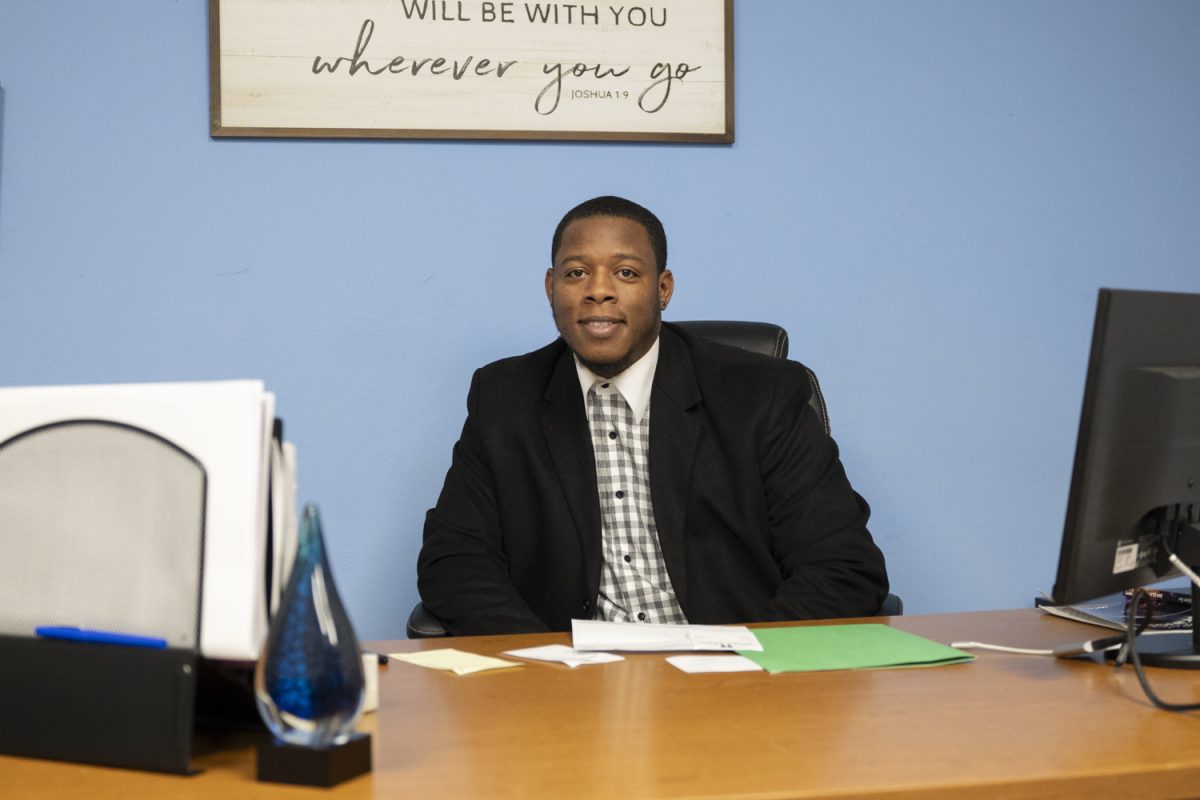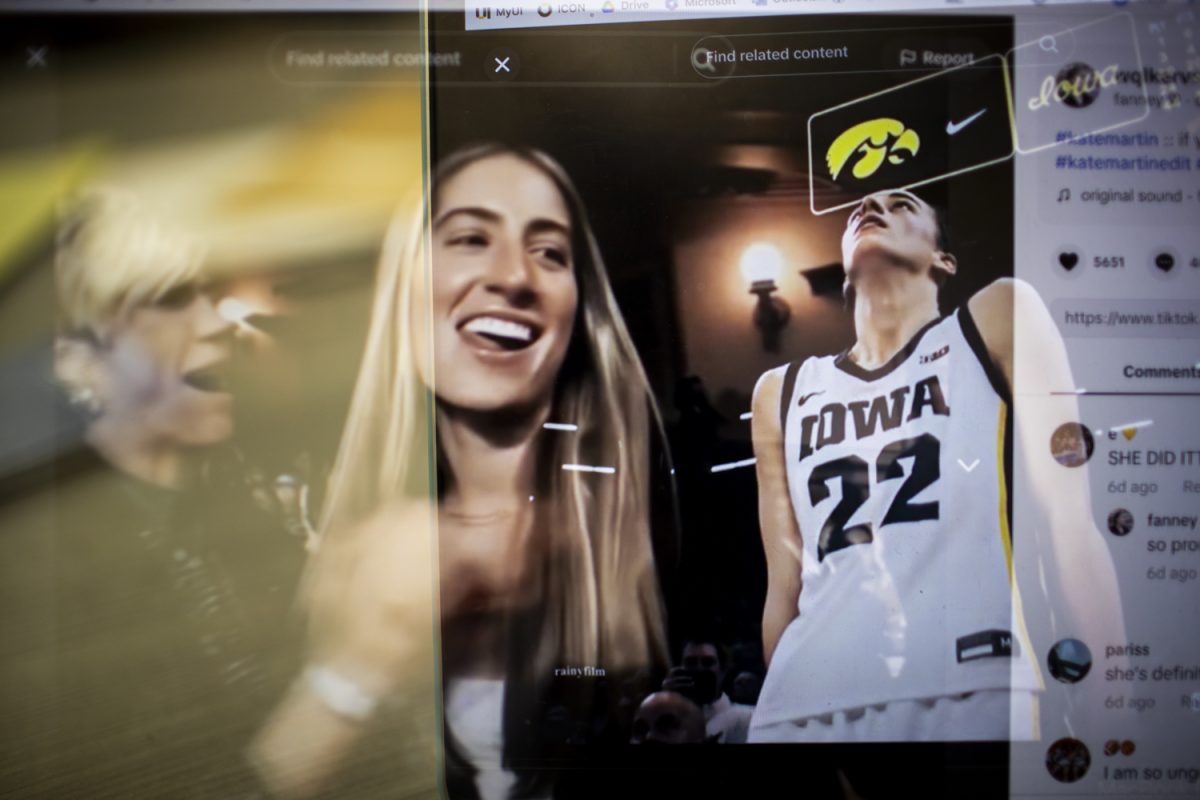When Jesse Albrecht returned to Iowa City in 2004 as a combat veteran after a year in Mosul, Iraq, his scars of war were far from healed.
In charge of security for the top medical officer while overseas, Albrecht said his mind became stuck in a mode of “hyper-vigilance” — a symptom that persisted when he came home.
Albrecht found himself scanning every person in a room for weapons, automatically checking back doors, and diving for cover at loud noises. The tall, thin, University of Iowa student suffered from post-traumatic stress disorder.
“I used alcohol and drugs as a means to numb myself to the experiences of what I did, and what I saw, and what I became,” the 32-year-old said, noting by the end of his tour in Iraq his unit was attacked with rockets and mortars on a daily basis. “You’re always a flip of the switch away from an assault rifle or machine gun pointed at somebody.”
But during a visit to a friend, he learned about the use of art to reconcile those experiences.
And with the internationally known Combat Paper Project organization on the UI campus this week, Albrecht found that outlet once again.
The organization runs a traveling workshop for making paper art and books out of veterans’ cut-up, mashed-up, and printed-up military uniforms.
The group’s open house in North Hall, starting at 3:30 p.m. today, will showcase the artwork of several UI student veterans, including Albrecht’s, an image of Gandhi printed on a sheet of paper made from his uniform.
“It is using art to bring in a community, to reach out to veterans because there can be some really, really major struggles,” Albrecht said. “You can use art as a vehicle to help bridge those wounds. It’s so amazing and so beautiful and it’s so important that this gets told.”
The organization, started in late 2007 by paper artist Drew Matott and Iowa City-native and war veteran Drew Cameron, has garnered global attention.
For Tim Barrett, a research scientist at the UI Center for the Book, the group’s visit has been a four-month planning process.
Because one of the main goals of the project is to make the paper-making workshops free for veterans and all exhibits open to the public, the Center for the Book raised funding by soliciting donations from the Iowa Humanities Board and other departments.
Barrett, a “paper specialist” himself, said the wait was worth it.
“In a way we kind of got out of the way,” he said. “They have their own momentum; it’s a beautiful thing.”
The UI’s paper-making facilities was one reason the two-week trip to Iowa was particularly exciting for the project’s facilitators, Matott said.
The organization used the studio at the Oakdale Campus, known as one of the best in the country, much of the time, he said. While there, they were able to “pulp” more than 100 pounds of uniforms.
The project also inhabited studios in North Hall, where piles of cut-up pieces of combat uniforms lay on tables next to finished artwork.
Different uniforms produce different colors and textures of paper, Matott explained while inking the image of an angel and soldier onto a wide, beige piece of paper.
Across the hall, others pulled letters in preparation for printing poetry next to images. Combat Paper Project also binds books with the handmade paper to print poems or send blank journals to troops.
In addition to the actual art, Matott said the conversations and community created by the workshops can be invaluable.
“[The military] deconstructs you when you go into the service and turns you into a warrior,” Matott said. “But when you leave the military, it’s up to you to deconstruct the warrior inside you and reconstruct yourself as a normal civilian.”
Military combat is one of the common sources for developing post-traumatic stress disorder, according to the center for the syndrome.
During a lecture about the organization at Shambaugh Auditorium on Thursday night, pictures of Combat Paper artwork flashed across the screen.
Dog tags, purple hearts, the American flag, and images of soldiers were printed in different colors on sheets of uniform-turned-paper.
Albrecht told the crowd how making art from those pieces of clothing — ripping the seams and removing buttons — is reclaiming something they couldn’t control while in combat.
Cameron summed up the project in a poetic remark during his speech.
“Pressing new memories, remaking sense,” the Iowa City native recited. “Contagious behavior, learning to love again.”






